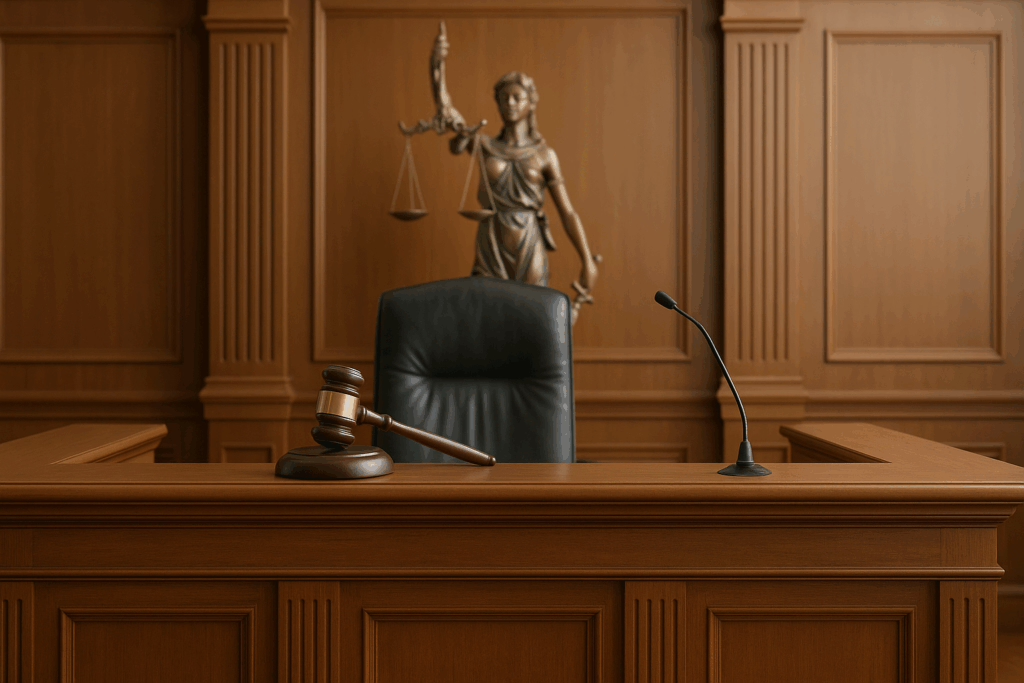Appeals and Cassation in Thai Law: Grounds, Chances of Success, and Insights from a Leading Thai Law Firm 
When clients ask about appeals and cassation in Thai law, two recurring questions arise: “What issues can be raised?” and “What are the real chances of success?” These are critical concerns, especially for litigants who have already gone through the demanding process of trial in the Court of First Instance.
This article provides a comprehensive overview of the appellate system in Thailand, the grounds available for appeal and cassation, statistical insights into success rates, and the strategic considerations that only an experienced appellate lawyer or a leading Thai law firm can provide.
Understanding Appeals and Cassation in Thai Law
What Is an Appeal?
An appeal allows a litigant to request review by a higher court, often the Court of Appeal, concerning both factual findings and legal conclusions. In civil cases, appeals can be limited by the amount in dispute. In criminal cases, appeals may challenge errors of law, fact, or sentencing.
📖 Office of the Judiciary: Court Structure
What Is Cassation?
Cassation refers to taking a case to the Supreme Court of Thailand, usually after the Court of Appeal’s judgment. Unlike an appeal, cassation primarily addresses questions of law or legal issues of significant importance.
-
In civil cassation, leave of the Supreme Court is often required.
-
In criminal cassation, issues may include misinterpretation of law, procedural irregularities, or miscarriage of justice.
Seven Grounds Commonly Raised in Appeals and Cassation
Legal practice shows that most successful cases on appeal or cassation in Thai law fall into seven principal categories:
-
Conflict with the Law: Misapplication of legal provisions or incorrect interpretation of statutory intent.
-
Admission of Inadmissible Evidence: Reliance on hearsay, coerced testimony, or illegally obtained documents.
-
Unreliable or Tainted Evidence: Questionable witnesses, forged or altered documents, or unscientific expert testimony.
-
Misinterpretation of Facts: Mistaken conclusions about documentary or physical evidence.
-
Ignoring Favorable Evidence: Failure to address alibi testimony, financial records, or medical reports that could alter the outcome.
-
Abuse of Judicial Discretion: Sentences or remedies disproportionate to the facts.
-
Procedural Irregularities: Breaches of due process such as rejecting key evidence without lawful grounds.
Chances of Success in Appeals and Cassation
Statistical Insights
According to judiciary data from 2023 (B.E. 2566):
-
The Court of Appeal modified over 5,000 civil judgments.
-
More than 1,200 judgments were reversed.
This demonstrates that appellate proceedings are far from symbolic, they can and do change outcomes.
📊 Judicial Statistics: Thailand Judiciary Annual Report
Practical Assessment of Chances of Success
The likelihood of winning an appeal or cassation depends on several factors:
-
Strength of Legal Grounds: More persuasive when falling into recognized categories such as conflict with law or procedural irregularities.
-
Quality of Legal Representation: Experienced appellate advocacy, particularly from a leading law firm in Bangkok, increases the chances of success.
-
Thoroughness of Lower Court Judgment: Well-reasoned and evidence-based trial judgments are harder to overturn.
-
Multiple Grounds: If more than one ground is present, the probability of reversal or modification increases.
Example Case Study
Scenario: The trial court convicts a defendant of attempted murder, although the evidence only shows simple assault.
-
Ground Applicable: Conflict with the law.
-
Reasoning: The classification does not align with the Penal Code. Such misapplication of law is a strong ground for cassation.
Strategic Considerations Before Filing
-
Cost-Benefit Analysis: Appeals take time and resources. Clients must assess whether the potential benefit outweighs costs.
-
Realistic Expectations: Not all appeals succeed; legal teams should provide candid advice.
-
Settlement Opportunities: Sometimes, the appellate stage opens negotiation channels.
-
Reputation Management: In criminal cases, appealing may mitigate reputational harm, even if chances of success are uncertain.
Civil vs. Criminal Appellate Pathways
-
Civil Appeals and Cassation: May raise both factual and legal issues, though cassation usually focuses on significant legal interpretations (e.g., contract law, property disputes).
-
Criminal Appeals and Cassation: Broader in scope but limited at cassation to errors of law, procedural violations, or unjust convictions.
📖 UNODC Criminal Justice Reform
Conclusion
Appeals and cassation in Thai law serve as essential safeguards to correct judicial errors and uphold fairness. While chances of success vary based on the quality of arguments, evidence, and legal strategy, the process is meaningful, thousands of judgments are modified or reversed every year.
For litigants considering this path, engaging with an experienced appellate lawyer or a law firm in Bangkok ensures that every potential ground is identified, articulated, and strategically pursued.
Contact Information
Siam Center Law Group
Website: https://www.siamcenterlawgroup.com
Phone: Available for consultation 5 working days a week
For support with preparing pleadings, submitting court documents, or exploring expedited dispute resolution, our attorneys are ready to assist you with professionalism and clarity.
